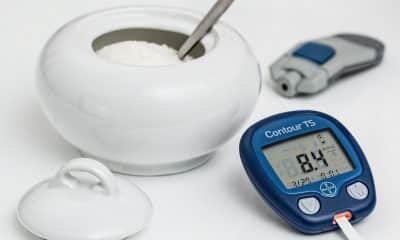Healthcare
Hypertension Rising Among Women and Youth: Cardiologists Sound Alarm on Silent Threat
Once considered a condition of ageing, hypertension is increasingly affecting younger populations and women, warn senior cardiologists at Apollo Hospitals, Ahmedabad. Ahead of World Hypertension Day on May 17, doctors have raised concerns about the growing burden of high blood pressure in India’s urban population, fueled by lifestyle shifts, emotional stress, and underdiagnosis.
Often dubbed the “silent killer,” hypertension can go unnoticed for years, leading to serious health issues like cardiovascular disease, kidney damage, and neurological complications. The rise in cases among women and youth reflects more profound changes in behaviour, nutrition, and awareness levels.
Women at Greater Risk
Women face unique physiological and emotional factors that raise their vulnerability to hypertension. Hormonal fluctuations—especially during menstruation, pregnancy, and menopause—can cause persistent blood pressure issues. In addition, conditions like polycystic ovarian syndrome (PCOS) and autoimmune disorders have also been linked to increased risk. But it’s not just biology.
“Emotional stress, often overlooked, plays a huge role,” said Dr. Sameer Dani, Director and Senior Interventional Cardiologist at Apollo Hospitals and Apollo CVHF Heart Institute. “The cumulative impact of career demands, family responsibilities, and under-addressed mental health challenges adds to women’s hypertension risk.”
Youth Hit by Lifestyle Factors
Hypertension is also rapidly growing among younger adults, with many presenting symptoms in their 20s and 30s. Dr. Dani cited a 25-30% increase in young hypertension cases over the past 30 to 40 years.
“We are seeing a clear shift,” he explained. “High stress levels, irregular sleep, poor dietary habits, and a lack of physical activity are key contributors. And while some of this is due to improved diagnostics and awareness, the trend is concerning.”
Processed foods high in sodium, poor hydration, and skipping meals are making matters worse. Dr. Jayesh Prajapati, Senior Interventional Cardiologist, Apollo Hospitals, Ahmedabad, emphasised the link between diet and risk: “Home-cooked meals are being replaced by junk food. Coupled with erratic routines, this puts students and working professionals at heightened risk. Many people don’t even know they’re hypertensive until they feel persistent fatigue, headaches, or palpitations.”
Local Data Reflects National Crisis
Apollo Hospitals’ recently released Health of the Nation Report 2025 reveals alarming numbers. Of the 15,172 individuals screened in Ahmedabad, 24.4% were hypertensive, and another 51.9% were pre-hypertensive. Only 23.7% had normal blood pressure, underscoring the widespread but hidden nature of the issue.
Integrated Prevention is Key
Experts recommend a multi-pronged approach to combat hypertension. While medications may be necessary in many cases, lifestyle interventions play a critical role.
Yoga, meditation, and other stress-relief techniques can help regulate mild to moderate hypertension. A low-sodium, balanced diet, regular physical activity, and routine check-ups are essential components of prevention and long-term management.
“Hypertension is manageable, but only if caught early,” Dr. Dani concluded. “This World Hypertension Day, we urge young people and women to take charge of their cardiovascular health before it’s too late.”
As urban living continues to transform how we eat, move, and work, cardiologists are calling for greater awareness, early screening, and community-level interventions to stem the tide of hypertension. World Hypertension Day is a reminder to stop and listen to your body.







































